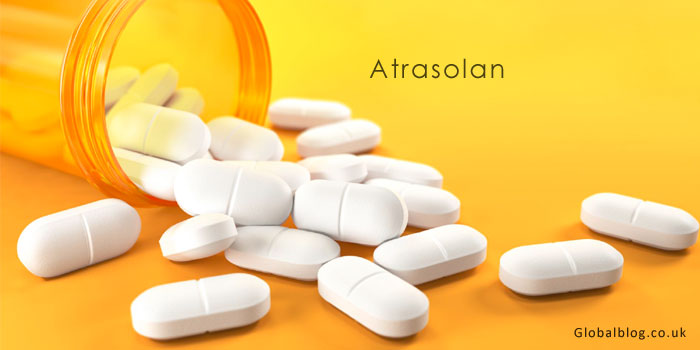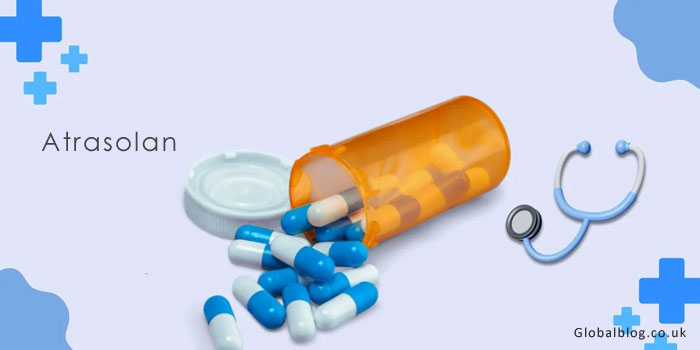Introduction to Alprazolam (Atrasonal)
Welcome to the world of Atrasonal – a medication that has sparked both praise and controversy in the realm of mental health. Dive into the history, impact, and alternative options surrounding this powerful drug as we unravel its effects on the mind. Get ready to explore Alprazolam like never before!
The History and Development of Alprazolam
Alprazolam, commonly known by its brand name Atrasonal, has a fascinating history and development. The drug was first synthesized in the late 1960s by Upjohn Pharmaceuticals, to create a benzodiazepine that could provide anxiolytic effects without sedation or muscle relaxation. After rigorous testing and clinical trials, Alprazolam was approved for medical use in 1981.
Its unique mechanism of action on the brain’s gamma-aminobutyric acid (GABA) receptors sets it apart from other benzodiazepines. This allows Alprazolam to quickly alleviate symptoms of anxiety and panic disorders in patients.
Over time, Atrasonal has become one of the most prescribed medications for managing various mental health conditions worldwide. Its effectiveness in treating anxiety disorders has made it a valuable tool for healthcare providers and patients alike.
The continued research and development surrounding Alprazolam highlight its importance in modern psychiatric care.
How Atrasonal Works in the Brain
Alprazolam, commonly known as Atrasonal, is a medication that belongs to the benzodiazepine class. When ingested, Atrasonal interacts with the brain’s neurotransmitters, particularly gamma-aminobutyric acid (GABA). GABA is a chemical messenger that helps regulate neuronal excitability throughout the central nervous system.
Atrasonal works by enhancing the effects of GABA in the brain. It binds to specific receptors on neurons, which leads to an increase in inhibitory signaling. This results in a calming effect on the brain and body, helping to reduce anxiety symptoms.
By modulating GABA activity, Atrasonal can help alleviate feelings of tension and worry. It has a rapid onset of action, making it effective for short-term relief of anxiety disorders and panic attacks.
Understanding how Atrasonal functions in the brain sheds light on its mechanism of action and why it is prescribed for various mental health conditions.
Common Uses for Alprazolam
Alprazolam, commonly known by the brand name Atrasonal, is a medication primarily prescribed to treat anxiety and panic disorders. Its fast-acting nature makes it effective in providing relief from symptoms such as excessive worry, restlessness, and tension.
Atrasonal works by enhancing the effects of a neurotransmitter called GABA in the brain. This results in a calming effect on the central nervous system, helping individuals feel more relaxed and less anxious.
In addition to anxiety disorders, Alprazolam may also be used for other conditions such as insomnia, muscle spasms, and certain types of seizures. However, it is essential to use this medication only as directed by a healthcare professional due to its potential for dependence and abuse.
While Alprazolam can be an effective treatment for various mental health issues when used appropriately under medical supervision, it is crucial to be aware of its risks and side effects. It’s always recommended to discuss any concerns or questions with a healthcare provider before starting or stopping any medication regimen involving Atrasonal.

The Controversy Surrounding Atrasonal and Mental Health
Alprazolam, commonly known by the brand name Atrasonal, has been a subject of controversy in the field of mental health. One of the main issues surrounding Atrasonal is its potential for abuse and addiction. Due to its calming effects on the central nervous system, some individuals may misuse this medication for recreational purposes.
Moreover, there are concerns about the withdrawal symptoms associated with Atrasonal. Abruptly stopping usage can lead to uncomfortable side effects such as rebound anxiety and insomnia. This dependency-forming aspect of Atrasonal raises red flags among healthcare professionals and patients alike.
Additionally, there have been debates regarding the long-term efficacy of Atrasonal in managing mental health conditions like generalized anxiety disorder or panic attacks. Some argue that while it provides immediate relief, it may not address underlying issues contributing to these disorders.
The controversy surrounding Atrasonal underscores the importance of cautious prescribing practices and thorough monitoring when using this medication for mental health purposes.
Side Effects and Risks of Taking Alprazolam
Alprazolam, commonly known by the brand name Atrasonal, can come with a range of side effects and risks when used. Some users may experience drowsiness, dizziness, or difficulty concentrating after taking alprazolam. It’s important to be cautious when driving or operating machinery while on this medication.
Other possible side effects include headaches, nausea, and changes in appetite. In some cases, alprazolam can lead to mood swings or increased anxiety levels. Long-term use of the drug can also result in dependency and withdrawal symptoms if abruptly stopped.
Additionally, there is a risk of overdose when taking alprazolam, especially when combined with alcohol or other substances that depress the central nervous system. It’s vital to follow your healthcare provider’s commands carefully and never exceed the optional dosage.
Before starting alprazolam treatment, make sure to discuss any pre-existing medical conditions or medications you are currently taking with your doctor for a safer experience.
Natural Alternatives to Atrasonal for Mental Health Treatment
When it comes to mental health treatment, some individuals prefer exploring natural alternatives to prescription medications like Atrasonal. One popular option is mindfulness meditation, which can help reduce anxiety and promote emotional well-being. Incorporating regular exercise into your routine has also been shown to have positive effects on mental health by releasing endorphins and reducing stress.
Another natural alternative is aromatherapy, using essential oils like lavender or chamomile to relax the mind and body. Herbal supplements such as valerian root or passionflower are believed to have calming properties that can aid in managing symptoms of anxiety or insomnia. Additionally, maintaining a healthy diet rich in fruits, vegetables, and omega-3 fatty acids can support overall mental wellness.
It’s important to consult with a healthcare provider before making any significant changes to your mental health treatment plan. Each individual may respond differently to natural alternatives, so finding the right approach tailored to your needs is key to enhancing your well-being.
Conclusion:
Atrasonal, also known as Alprazolam, is a widely used medication for treating anxiety and panic disorders. Its impact on mental health can be significant, providing relief to those struggling with these conditions. However, the controversy surrounding its potential for abuse and addiction should not be overlooked.
The decision to use Atrasonal or explore alternative treatments should be made in consultation with a healthcare professional who can provide personalized guidance based on individual needs and circumstances. It is crucial to prioritize mental health and seek comprehensive care that addresses all aspects of well-being for long-term success and healing.
